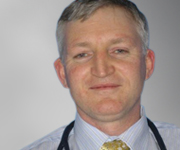THE child lies in the hospital, defeated by cancer and on the edge of death. Clinicians advise that there is nothing more to do beyond keeping her comfortable. The parents disagree.
Wanting absolutely everything done, they secure a court order to enforce their wishes. With every cardiac arrest, the treating team reluctantly sets to work. She has already arrested nearly 10 times through the day and staff dread the next code.
The team feel distressed and angry — forced to deprive this child of a peaceful death. Their duty to her is violated.
They feel the court order is forcing them to participate in child abuse. What should they do?
Parents’ wishes are normally a good guide to their child’s needs and best interests, but in this case, the treating team may be best placed to identify better options.
Experience and knowledge give insight into how resuscitative measures may feel for a dying child. Professional detachment assists good decision making.
The parents, naturally, are far from detached and may be emotionally confused, perhaps in denial, and panicking. Better communication with the distressed couple is probably needed.
Doctors should aim to build a partnership with patients based on trust and respect. The shared goal is to act in the best interests of the patient. Inevitable power imbalances must be managed and each party’s values and conscience acknowledged, avoiding paternalism or authoritarianism in the relationship.
Doctors and patients may not always agree. A recommended treatment may be refused or poorly implemented.
In this case, recommended palliative care is refused. But words like “recalcitrance” have no place here, or in the proper discourse of the doctor–patient relationship.
A doctor must share with the patient the evaluation of the patient’s views, values and circumstances in considering appropriate medical responses. Conscience may guide the doctor to refuse a particular request, such as this resuscitation. The doctor ought, nonetheless, to continue to offer other care, to keep up their end of the partnership.
The patient is free to seek the refused treatment elsewhere but should not coerce the doctor’s cooperation in something they believe will be harmful for the patient. For this dying girl, clinicians acting on conscience may be her only protection from harm.
One prominent view argues that conscience has no place in medicine, and doctors ought always to carry out the patient’s lawful, efficient and beneficial requests. Even though it is promoted as being anti-paternal, this model would still result in an unbalanced, authoritarian relationship, now with the patient holding all the power and the doctor reduced to mere technician, their autonomy refused.
This model would hold no hope for the little girl burdened by the court order and panicked parents. Nor would it have held any reliable hope for the coopted subjects of the Tuskegee syphilis study, where dominant views, in government and the medical profession, argued that the broader social good justified the study’s continuance against repeated whistleblower conscientious objection.
Medical schools and colleges must avoid any authoritarian selectivity regarding values, lest they weed out future whistleblowers or reduce needed diversity in the profession.
Patients seek doctors who share their values, and sometimes because they refrain from certain procedures. Different values might be labelled “rigid” simply because they are held in the face of majority rigidity concerning contrary values.
Conscience-based medicine is practised with a concern for patient wellbeing, recognising patients’ dignity and worth. Yet those who see little place for conscience insist that doctors who conscientiously refuse to cooperate in provision of controversial treatments that they regard as harmful should be punished like the recklessly negligent or boundary violators appearing before medical boards.
Homogeneity under a majority, state or institutionally ordained value system or dictated rules has been shown in numerous historical cases to be disastrous for patient protection. The demand for lockstep adherence to required values and rules seeks to relegate conscientious objection to the realm of the unprofessional and illegal, and even the traitorous.
The state legal mechanism fails the dying girl because it does not acknowledge her need for conscientious care by her clinicians. The profession and the health system failed her and her parents, because widespread confusion has been allowed to persist about the validity and desirability of attending to and following conscience, both in day-to-day practice and even in the face of court orders or administrative directives.
Respect for doctors’ right to conscientiously object is the ultimate safeguard against abuses of power, error and exploitation in medicine.
It is the key safeguard of the doctor–patient relationship.
Dr Brian Conway is a paediatrician at the Burnside Hospital in SA.
This ‘Opposing Views’ article appears in the MJA. It is reproduced with permission of the MJA. Please click here to read the opposing view by Dr Julian Savulescu.
Posted 7 November 2011

 more_vert
more_vert
You can not be a decent person let alone a decent medical practitioner if you lack conscience. Without it you can not recognise and respond to the suffering of another.
You will become just one more “trained functionary”.
Having said that..
We are well past the point when the legal “profession” should have been told to butt out of the medical decision making process, however they try and justify their interference.
Medicine and Medical Practice is becoming dangerously damaged by the (painfully prolonged) ponderous pontifications of practitioners of sophisticated sophistry. Their love of absolutes, black and whites should just not be applied to the ART of Medicine, which as we all know is composed of many shades of all colours.
Why have we let them get away with this damage for so long?
When will the “Colleges” for which we all pay through the nose, the Colleges that “oversee Training and Standards”, when will they get together, pool some of OUR funds and fight for our benefit, to oppose this increasing erosion of OUR professions?